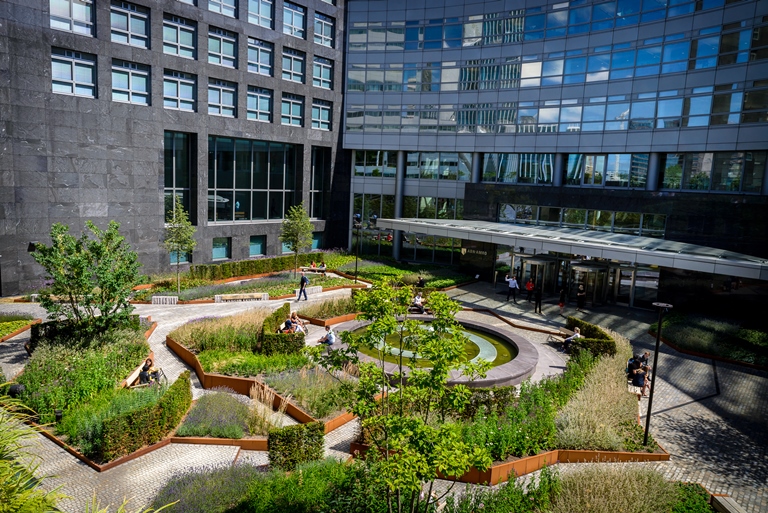12.09.2018
Behaviour change is key to energy efficiency
The fifth Behave conference was held on 5 – 7 September in Zürich, Switzerland, bringing together researchers, policy makers and practitioners in the field of behaviour and energy efficiency. IRI UL presented new research and development approaches and the results of two European projects. IRI UL is a partner in the Mobistyle project, funded within the Horizon 2020 program, and the coordinator of the PEOPLE project, funded by the Erasmus + program Knowledge Alliances.
Behave is a European platform, organised by the Zürich University of Applied Sciences, that facilitates the exchange of experience, best practices and know-how in the field of energy-sustainable behaviour in transport, buildings and consumption of goods and the introduction of sustainable, low carbon technologies, many of which are energy-related. Conference participants presented the findings of multidisciplinary and interdisciplinary research on new technologies and best practices for understanding habits and influencing energy efficient behaviour. They presented theoretical knowledge, new research methods and innovative practices that promote sustainable and energy-efficient behaviour at all levels, from individuals and their way of life in buildings to organisations, districts, cities, countries and regions.
MOBISTYLE project partners organised one of the six pre-conference workshops, joined by several sister projects in the Horizon 2020 program. The key theme of the projects is the use of ICT to promote energy-efficient behaviour. The workshop was led by Dr Simona D’Oca, Huygen Installatie Adviseurs, and Dr Dan Podjed, ZRC SAZU and IRI UL. They presented a people-centred approach that we use for the development of new ICT solutions in the MOBISTYLE project, and facilitated the discussion about the potentials of such approaches in developing people- and environment-friendly products and services. In their conference paper, MOBISTYLE researchers presented the people-centred methodology of influencing behaviour based on two important theoretical approaches – theory of planned behaviour and theory of practice. By combining two theoretical approaches that at first sight appear to be incompatible, they try to design technological solutions that will simultaneously affect the individual and the community, and in the short term impact the behaviour, while changing the practices and habits of people in the long run. The approach is being tested in MOBISTYLE project’s five case studies.
PEOPLE project team members contributed to the Behave 2018 conference with a paper presenting an interdisciplinary, people-oriented research and development approach for understanding and developing energy information systems in public buildings. In the Slovenian PEOPLE case study, researchers and a team of students have studied energy management and energy related behaviour in one of the buildings of the University of Ljubljana. A combination of qualitative and quantitative research methods (ethnography, questionnaire analysis and data mining) have been used to identify the values and behaviour of different groups of building occupants in relation to energy use and in what ways technologies, such as energy information system and sensors, contribute to more efficient use of energy. They found that top-notch technology is not yet a guarantee for building occupants’ well-being and reduced energy use. The key step is to involve users into the development and implementation of technologies from the very first stage of the development process onwards.
An extended summary of both contributions, User in Control: People-Centered Approach for Developing ICT Solutions and Supporting Energy Efficiency (Simona D’Oca, Dan Podjed, Ana Tisov, Jure Vetršek) and Interdisciplinary People-Centered Approaches to Understanding and Improving Energy Information Systems in Public Buildings (Sara Arko, Gregor Cerinšek, Dan Podjed, Ajda Pretnar, Jure Vetršek) will be published in the conference proceedings.
The key lesson that came from Switzerland to Slovenia is the following: it is high time to stop speaking about the challenges that humanity will have to face in the future. The future is already here, and in the field of energy efficiency and sustainable solutions and sources of energy, we are confronted with serious problems, often hiding underneath the fashionable term “challenges.” Closer cooperation between engineers and social sciences and humanities researchers is one of the ways in which we may manage to find better solutions. According to the findings from the conference, these new technologies will primarily be tools that will enable people to lead more sustainable lifestyles and ensure a healthy outdoor and indoor environment.
Image photo: Kateřina Kaprová



